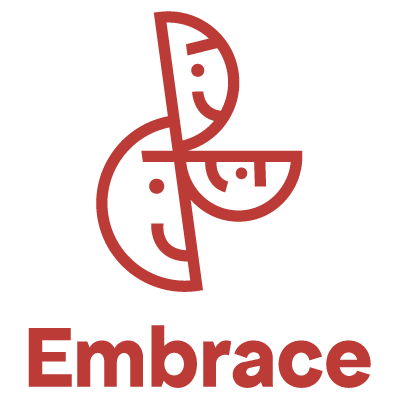Embrace Project’s first 5 months: what we have been doing
The Embrace Project officially started in January 2022. Over the first 5 months, the project partners engaged in different activities, aimed at gathering insights on newcomers’ political participation through focus groups and desk research.
This first post is focused on the latter: a document to present a picture, as up-to-date as possible, of the current state of the involvement of newcomers in political decision-making mechanisms in the six partner countries of the project, highlighting the main obstacles and difficulties at this level of inclusion. It is completed by a collection of 24 significant experiences of formal and non-formal participation carried out in the different European territories, analyzing some of their limitations but also extrapolating their elements of strength.The main sources of information were scientific literature, reports and strategic documents provided by all project partners.
The research highlights how newcomers often face obstacles when trying to successfully participate in public affairs, such as administrative barriers, lengthy procedures, insufficient involvement of educational institutions, lack of language programmes and job opportunities, inadequate housing, and unequal access to health and other social services. These barriers create other obstacles that affect social integration and political participation, as they trap people in a vicious circle of exclusion and insecurity. In addition, there are some operational challenges, first of all the difficulty for migrants to advocate for themselves, and to access opportunities to associate. Migrants are usually immersed in bureaucratic processes such as obtaining legal documents or applying for jobs.
They may be reluctant to hear about and contribute to public policies and they are unaware of the impact of their involvement. Besides, migrant communities are often closed on themselves, not united and organized. Therefore, they have less power in society. Migrants-led associations very rarely work together. There is also almost no search for innovative methods of participation, they remain stuck in traditional forms of political participation.
But the general picture of the phenomenon includes also positive experiences: we mapped out 24 good practices identified by partners directly involved in the field of integration, both third sector and public bodies. They can provide further inspiration and ideas on how to implement or integrate the actions of migrant inclusion into policy-making processes.
Among the experiences of formal political participation – which include those activities directly related to the life of public institutions: voting, standing as a candidate in local/regional/national/EU elections or in representative body – there are: the European Migration Advisory Board, established by the European Commission to encourage newcomers’ participation in the policy debate; many initiatives led by municipalities, as The Cultural Council in Palermo, the Advisory board Culture in Mechelen; other bodies as the Council for Migration in Portugal; The Academy for the participation of Refugees, in France; the Council for the Integration of Foreigners in Slovenia.
These experiences can be formal opportunities for newcomers to participate in decision-making on integration processes and a way for people from different communities to work together, as well as to collaborate with public and private institutions and get closer to the local community. On the other hand, there are critical elements, such as the lack of support and backing from local and national institutions, a symptom of a reluctance on the part of administrations and public bodies to promote paths of encounter and co-planning.
The experiences of informal political participation – which include activities related to advocacy, lobbying, awareness-raising, developed by activist/supporter/follower of a party, trade union, association, committee or informal group – you can find: StraVox – the voice of voiceless, Italy; Greek Forum of Migrants, Greece; Allomondo, France; Comparte, Portugal; The Migrants Participation Project, Slovenia; Dialogue Moments, Belgium. The most recurrent positive element in this series of cases is the participatory and co-creative character of these initiatives which, following a bottom-up approach, unite the migrant community with the local community and with local administrations, with the aim of creating a framework of social integration capable of supporting the development of a multicultural society.
One of the recurring criticalities in these initiatives is the difficulty in finding the commitment and cooperation of newcomers on social issues not directly linked to specific needs. Many of these experiences are in fact linked to emergency situations, and not to broader reflections or visions of democratic and civic activation.

Co-funded by the European Union.

EMBRACE was funded by the European Union’s Asylum, Migration and Integration Fund. The contents of this article represents the views of the author only and is his/hersole responsibility. The European Commission does not accept any responsibility for use that may be made of the information it contains.